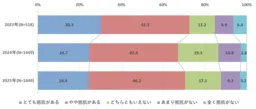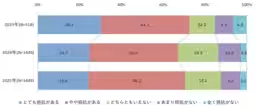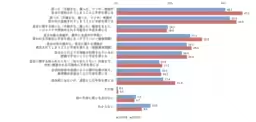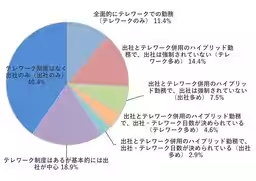

Impact of Dark Patterns on Consumer Behavior and Trust in Companies Revealed by New Survey
Understanding Dark Patterns and Their Effects
In the rapidly evolving digital landscape, the recent consumer awareness survey conducted by the Japan Information Economy Society Promotion Association (JIPDEC) has unveiled significant insights into the impact of dark patterns on consumer behavior. These manipulative designs, which lead users towards specific actions often unrelated to their intention, have become a crucial area of focus as the survey indicates that about 70% of users discontinue their actions upon encountering them. This trend has serious implications for the trustworthiness of companies employing such strategies.
Key Findings of the Survey
The study, which compiled responses from 1,449 individuals aged 18 to 79, reveals a growing resistance among users regarding the sharing of personal information. Approximately 70.6% of the participants expressed discomfort when asked for personal details, an increase of 3.5 percentage points from the previous year. This resistance is indicative of a heightened awareness surrounding privacy issues and the protection of personal data.
Approximately half of these respondents reported having quit a service rather than share their information, demonstrating a direct correlation between privacy concerns and consumer behavior. The findings suggest individuals are becoming more selective about how their data is used, signifying a shift in the consumer landscape towards greater privacy awareness and protective behaviors.
Rise of Generative AI Use
Interestingly, usage of generative AI technologies has seen a dramatic rise, with an increase of 10% compared to the previous year, particularly among younger males. Positively perceived as helpful, 27.5% of respondents found these technologies beneficial, reflecting a growing acceptance of AI in personal and commercial circles. However, apprehensions still linger regarding risks such as misinformation from AI generating false narratives and deep fakes. This dichotomy illustrates a complex relationship where consumers embrace the potential of these technologies while remaining cautious about their implications.
Trust Recovery After Data Breaches
The survey also assessed consumer expectations regarding corporate responses to data breaches. Participants emphasized that a thorough and empathetic approach in addressing issues following a data leak is vital for restoring trust. Companies must ensure that they not only act swiftly but also provide honest and comprehensive information regarding corrective measures. Approximately 60% of respondents identified clear communication and thoughtful outreach to affected customers as critical when a breach occurs.
Dark Patterns: Trust Erosion
Among the most striking revelations of the survey is the profound effect of dark patterns on consumer trust. Tactics that facilitate unnecessary information gathering or pressure users into signing up for recurring purchases can lead to a significant negative shift in user perceptions. This study found that around 70% of users would abort actions such as purchasing or registering when exposed to these tactics, which raises important considerations about the long-term implications for brand credibility.
Perceptions on Flexible Work Environments
Lastly, the survey touched on attitudes towards work settings, revealing a strong preference for traditional office attendance amidst the rise of remote work. Nearly 60% of respondents indicated a preference for working in an office environment, reflecting a lingering attachment to professional interactions that virtual offices cannot replicate.
Conclusion
The findings from JIPDEC's consumer awareness survey underscore pressing concerns around data privacy, the risks associated with generative AI, and the potential for dark patterns to undermine consumer trust in companies. As consumers continue to prioritize security and transparency, businesses must adapt to these evolving expectations or risk damaging their reputations in an increasingly skeptical market. This dynamic ultimately signals a call for organizations to reflect upon their design choices and corporate policies, ensuring they align with consumer values to foster lasting relationships built on trust.




Topics Consumer Products & Retail)










【About Using Articles】
You can freely use the title and article content by linking to the page where the article is posted.
※ Images cannot be used.
【About Links】
Links are free to use.